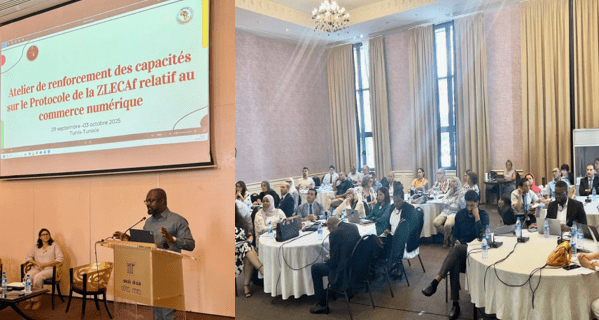A landmark AfCFTA workshop aims to align Tunisian law with new pan-African digital standards, creating a model for the continent’s $712 billion digital economy potential.
The African Continental Free Trade Area (AfCFTA) Secretariat, in partnership with the Tunisian government, has launched a pivotal five-day workshop designed to fast-track the adoption of a groundbreaking Digital Trade Protocol. This initiative marks a critical step in building a unified, continent-wide digital market.
The workshop, focusing on capacity building and technical support, centers on the AfCFTA Protocol on Digital Trade. Formally adopted by African Union leaders in February 2024 and detailed with eight annexes in February 2025, the protocol establishes the rules of the road for the continent’s online commerce. It covers vital areas including cross-border data flows, digital product market access, consumer trust, and the promotion of emerging technologies.
The successful implementation of this framework is seen as essential for unlocking Africa’s digital economy, which is currently valued at $180 billion. According to projections, it is poised for explosive growth, potentially reaching $712 billion by 2050.
This week’s session in Tunisia is a key part of a broader AfCFTA support program to help member states translate the continental agreement into national law. The agenda includes deep-dive training on the protocol’s provisions, a comprehensive “regulatory gap analysis” to compare Tunisian laws with AfCFTA standards, and the development of a concrete national action plan for alignment.
Gilberto Antonio, Chief Technical Advisor at the AfCFTA Secretariat, highlighted Tunisia’s strategic role in this continental effort. In his opening speech, he identified the nation as “one of the most advanced African countries in terms of digital transformation.”
“Tunisia offers a fertile ground to launch the detailed presentation of the Protocol on Digital Trade and its Annexes, as well as to conduct the regulatory gap analysis,” said Antonio. “This exercise will serve as a model to be extended to other countries across the continent.”
He credited Tunisia’s “dynamic ecosystem, driven by skilled talent, innovative start-ups, robust infrastructure, and strong institutions” for positioning it as a pioneer.
Echoing this sentiment, a statement from the Tunisian Ministry of Trade and Export Development, delivered by Chief of Staff Ms. Lamia Abroug on behalf of Minister Samir Obeid, characterized the workshop as a “valuable technical opportunity.”
The statement emphasized that the event provides a “high-level strategic platform to objectively assess the degree of alignment between our national regulatory framework on digital trade and the AfCFTA Protocol on Digital Trade,” describing it as a key component of Tunisia’s economic future within the free trade area.
The outcomes of this workshop are expected to not only strengthen Tunisia’s digital ecosystem but also provide a replicable blueprint for other African nations embarking on the same journey toward a integrated digital single market.
TunisianMonitorOnline (NejiMed)




